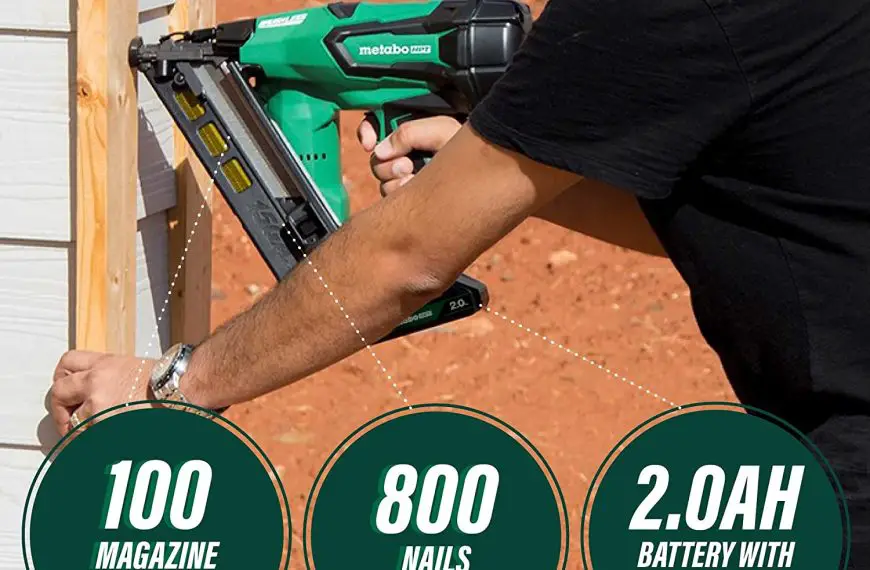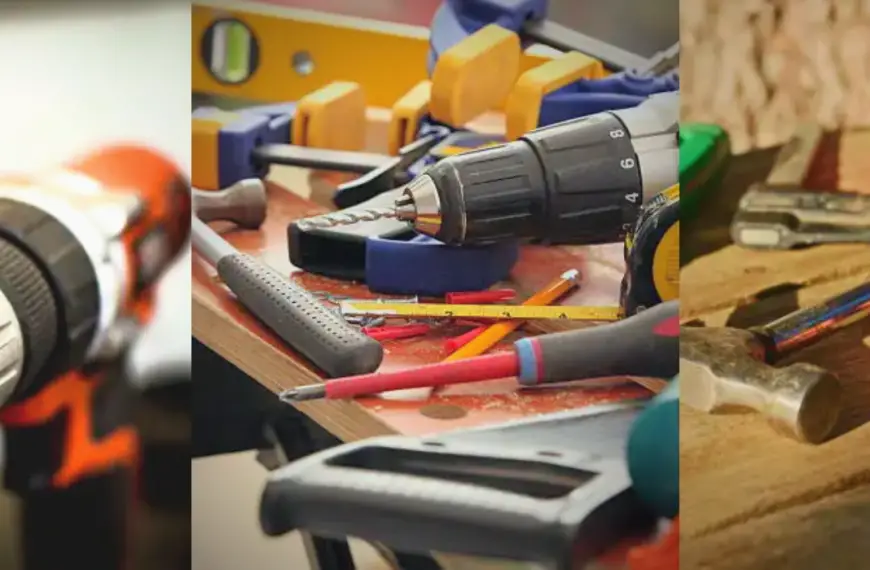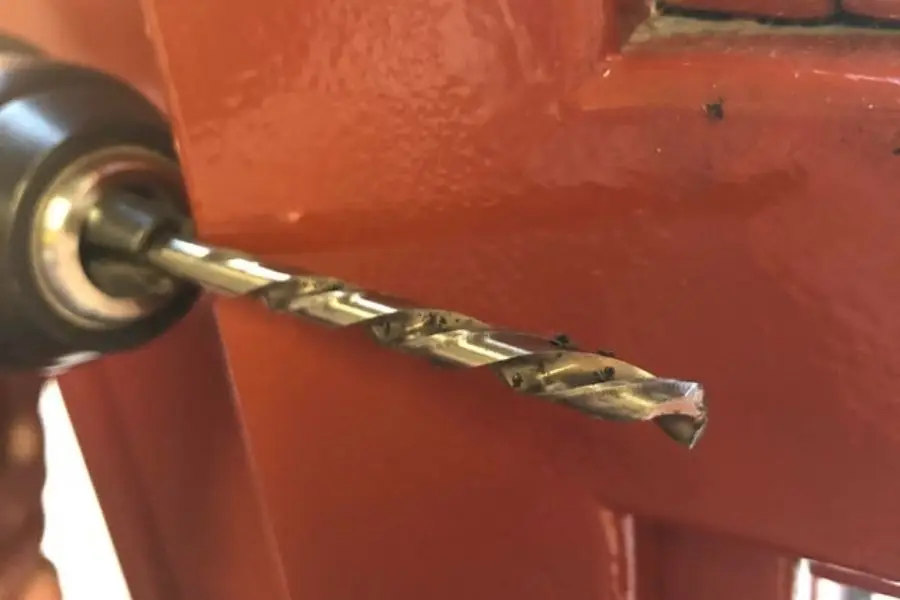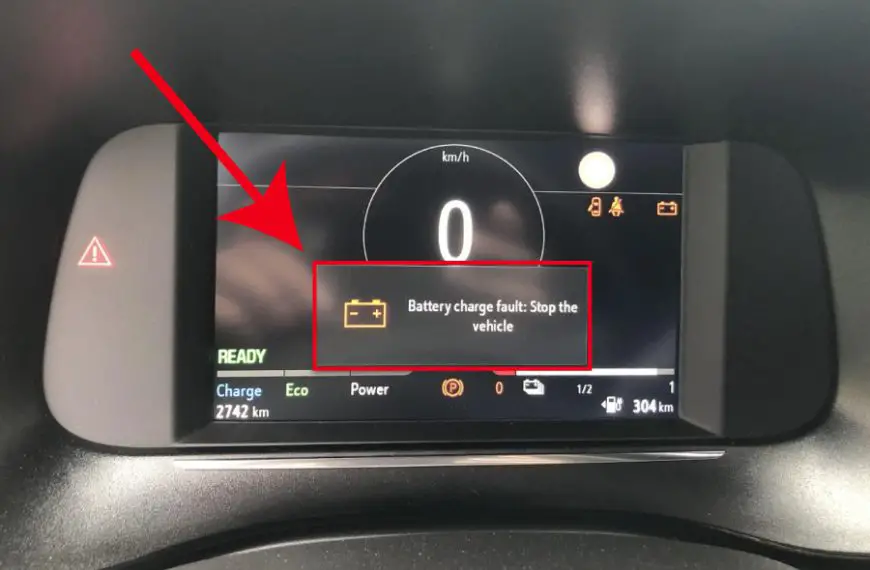When choosing a pressure washer, there are many factors to consider, including the pressure output, water flow rate, and overall performance. The Ryobi 1900 psi and 2000 psi pressure washers are two popular electrically-powered options on the market.
While both models offer powerful cleaning capabilities, key differences may make one a better fit for your specific cleaning needs. In this article, I’ll compare the Ryobi 1900 vs 2000 psi pressure washer models to help you make a wise option.
Note: Ryobi 1900 psi & 2000 psi pressure washers are only electrically powered units.
Ryobi 1900 vs 2000 psi Pressure Washer
As the name suggests, the Ryobi 1900 psi pressure washer can generate a maximum pressure of 1900 psi (Pressure per sq. in) with 1.2 GPM (Gallons Per Minute), while the Ryobi 2000 psi pressure washer unit can generate a maximum pressure of 2000 psi with 1.2 GPM.
A 100 psi pressure can make a big difference in removing dirt and grime from surfaces.
Both these pressure washers have varying applications and use, making them fundamentally distinct from each other. To grasp the technical difference, a brief summary is presented below.
.
| Specification | Ryobi 1900 psi (RY1419MT) | Ryobi 2000 psi (RY142022VNM) |
|---|---|---|
| Pressure with a 15-degree nozzle | 1900 psi | 2000 psi |
| Flow rate with a 15-degree nozzle | 1.2 GPM | 1.2 GPM |
| Pressure with a 40-degree nozzle | 800 psi | 1200 psi |
| Flow rate with a 40-degree nozzle | 1.4 GPM | 1.5 GPM |
| Weight | 21 lbs | 29 lbs |
| Power Cord Length | 35′ | 35′ |
| Noise Level | 95 db | 102 db |
| Warranty | 3-year limited warranty | 3-year limited warranty |
Note: These specifications values were measured with Ryobi Orifice nozzles and 25′ hose AWC 14 (Included with the Unit).
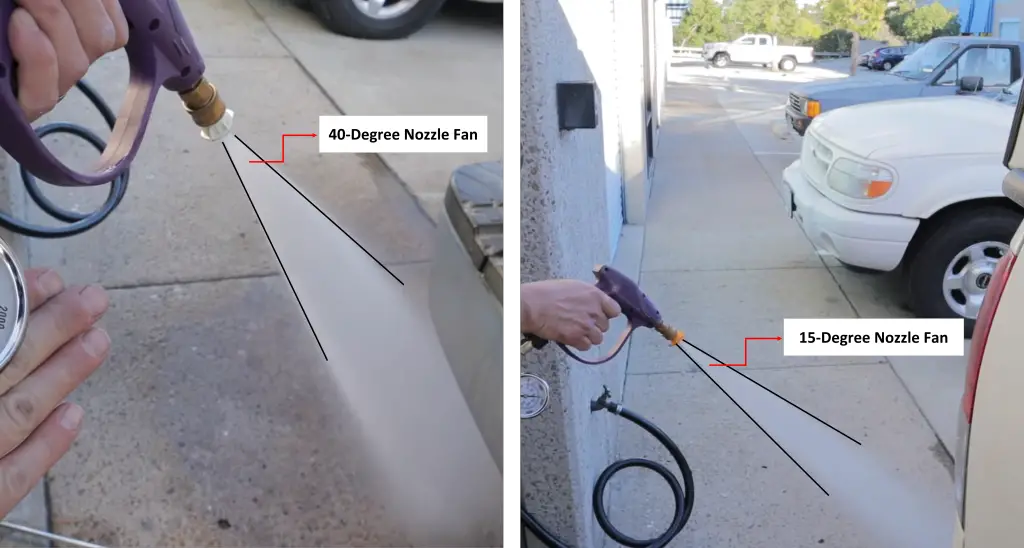
Pressure & flow rates can be varied using different sizes of orifice nozzle as per your requirements. You can select the size of the orifice nozzle as per your pressure & flow rate requirement here.
But remember that the maximum pressure & flow rate depends on the unit’s rated pressure & flow rate.
Application-wise difference between Ryobi 1900 vs 2000 psi Pressure Washer
1) Cleaning:
Ryobi 1900 & 2000 psi pressure washers are made for light to medium-duty cleaning tasks. Both these units are a good option for DIYiers but are not recommended for professional use because cleaning a particular surface can take longer.
With both units, you can clean dirt and grime off various outdoor surfaces around your home, including driveways, decks, windows, cars, etc.
The following pictures will provide you with some ideas.
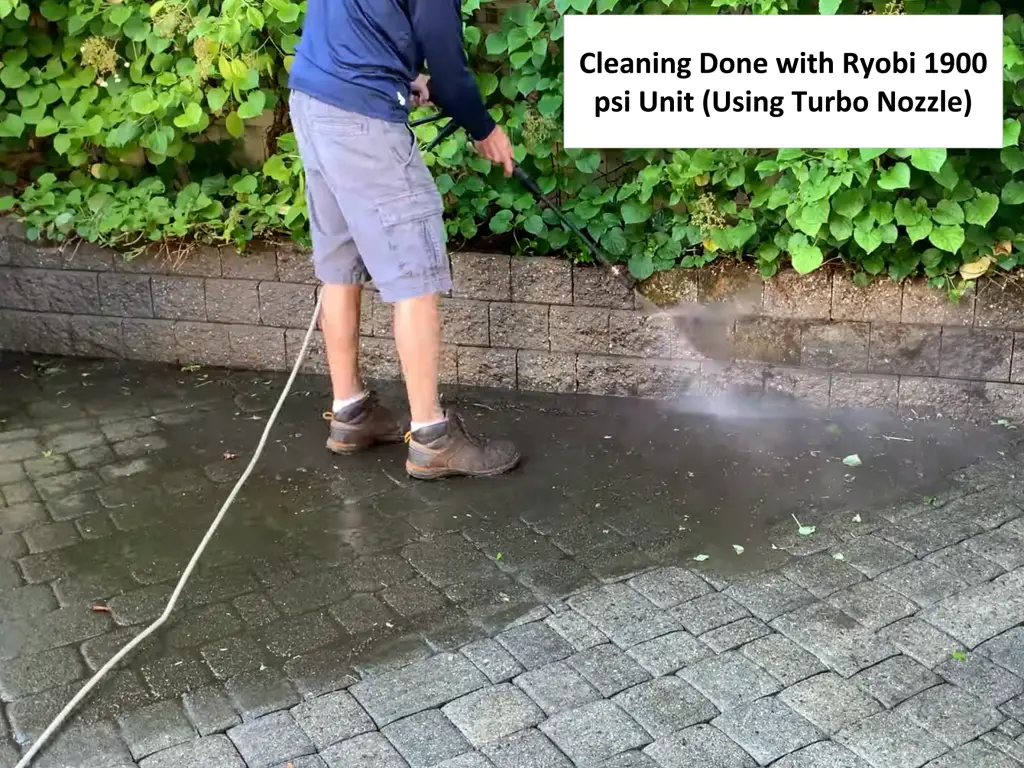
We can see in the picture above that Ryobi 1900 psi can efficiently be used to get rid of green mosses from patios, driveways, walls, or even vinyl fences.
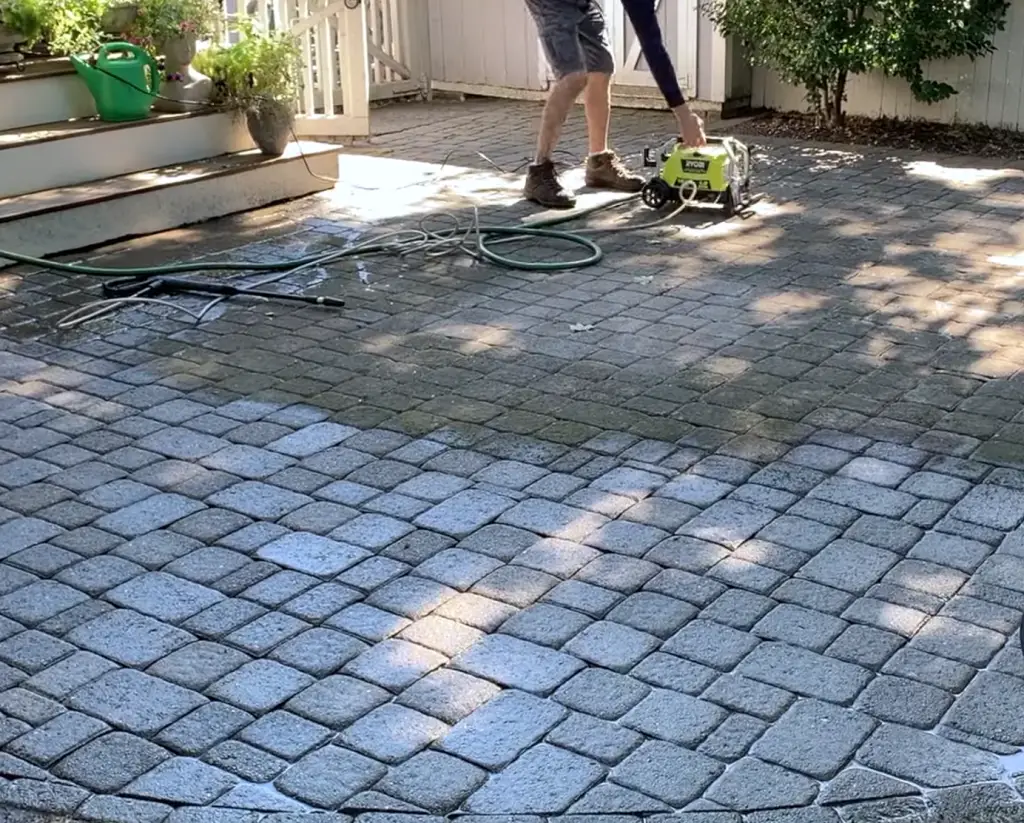
Certainly, the Ryobi 2000 psi unit, with 100 psi more than the Ryobi 1900 psi unit, is capable of completing this task in less time (Which might be worth the extra $50 or might NOT!).
2) Deep Cleaning:
As I mentioned before, these units are light to medium-duty units. It can not remove deep stains (Although this cleansing was done without detergent). It is evident from the following picture.
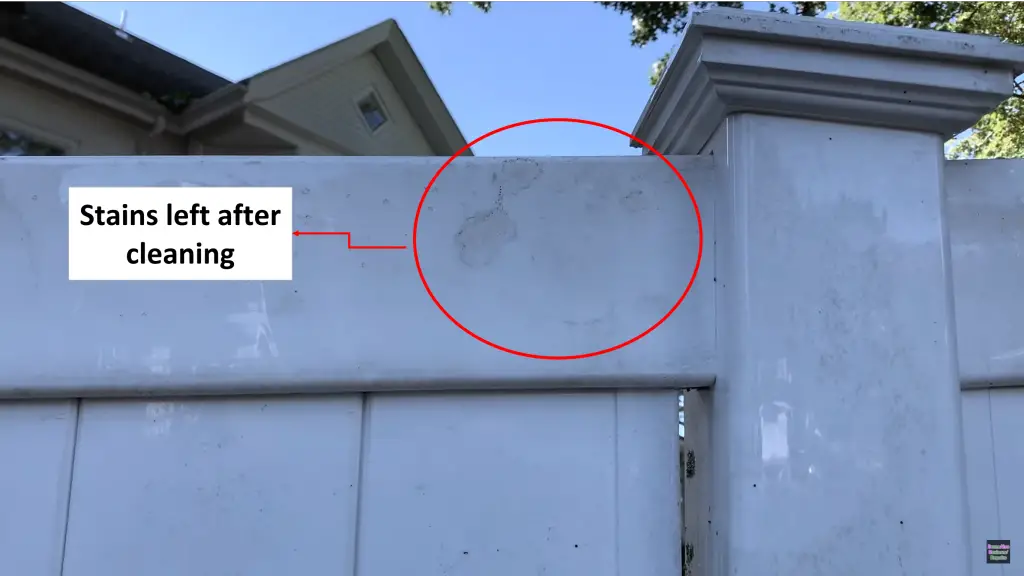
For deeper cleaning, it is recommended to use the turbo nozzle or Ryobi surface cleaner, which is sold separately, or you can buy it with the unit as well. (1900 psi/2000 psi). The difference can be seen in the following picture.
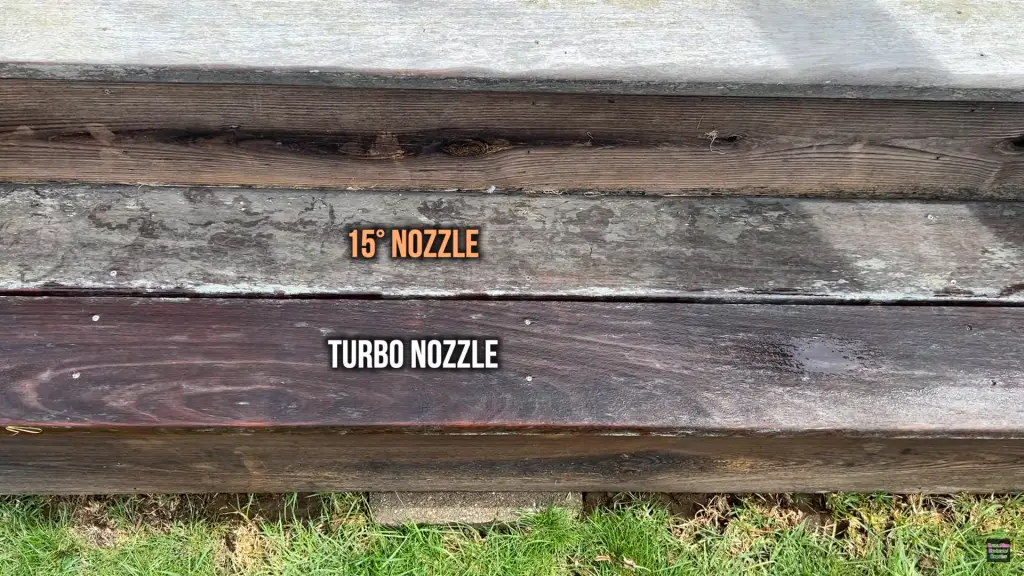
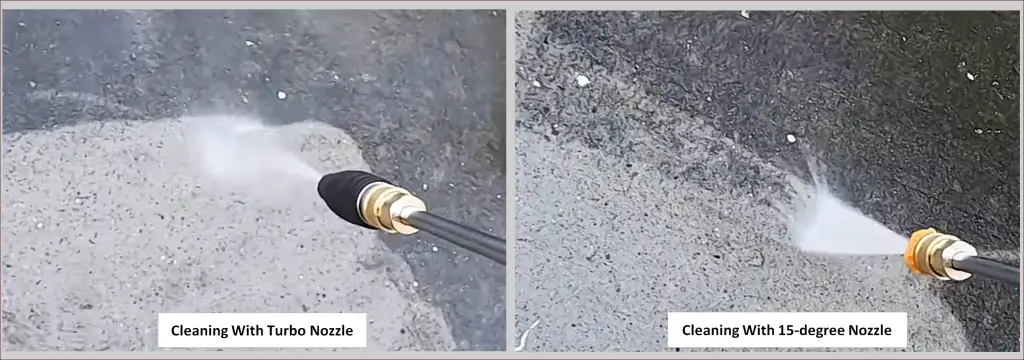
3) Performance
To be honest, here, the 2000 psi unit isn’t as good as Ryobi advertised. It is not a very efficient pressure washer. It merely hits the 1900 psi figure and draws more current than the 1900 psi unit. On the other hand, 1900 psi has the edge over the 2000 psi unit because it is a lot cheaper & efficient, as Ryobi advertised.
Interested in, How Long Do Ryobi 18v Batteries Last? Click Here to find out!
Some Physical differences & similarities between Ryobi 1900 vs 2000 psi Pressure Washer
Physical Difference:
1. Ryobi 1900 psi Pressure washer is a horizontally operated unit, while 2000 psi is a Vertically operated unit.
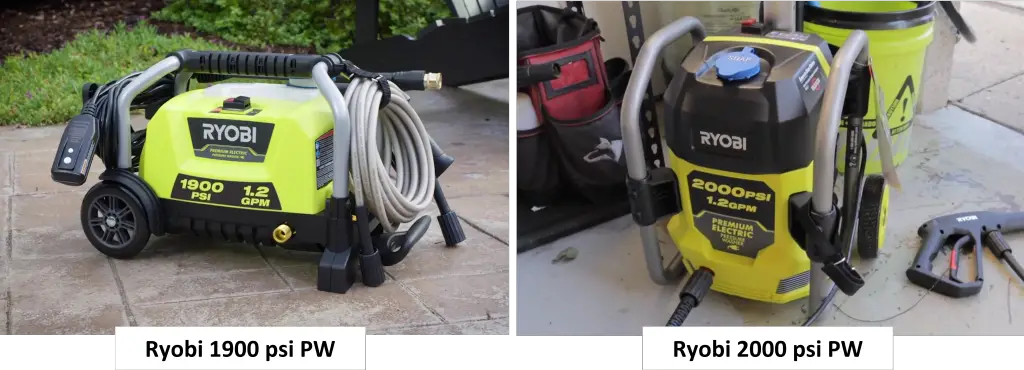
2. Wand: The Ryobi 1900 psi has a plastic wand, while the Ryobi 2000 psi unit has a metal wand.
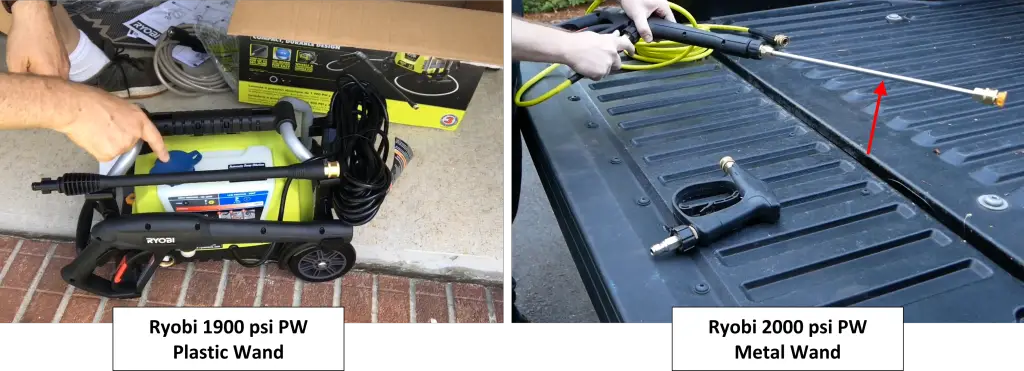
Similar Features:
1. Nozzles:
Both pressure washers (1900 psi & 2000 psi) are equipped with three different nozzles: a Soap nozzle used when applying soap solution, a Turbo nozzle used for deep cleaning, and a 15-degree nozzle suitable for medium or general cleaning of surfaces like driveways, patios, etc.
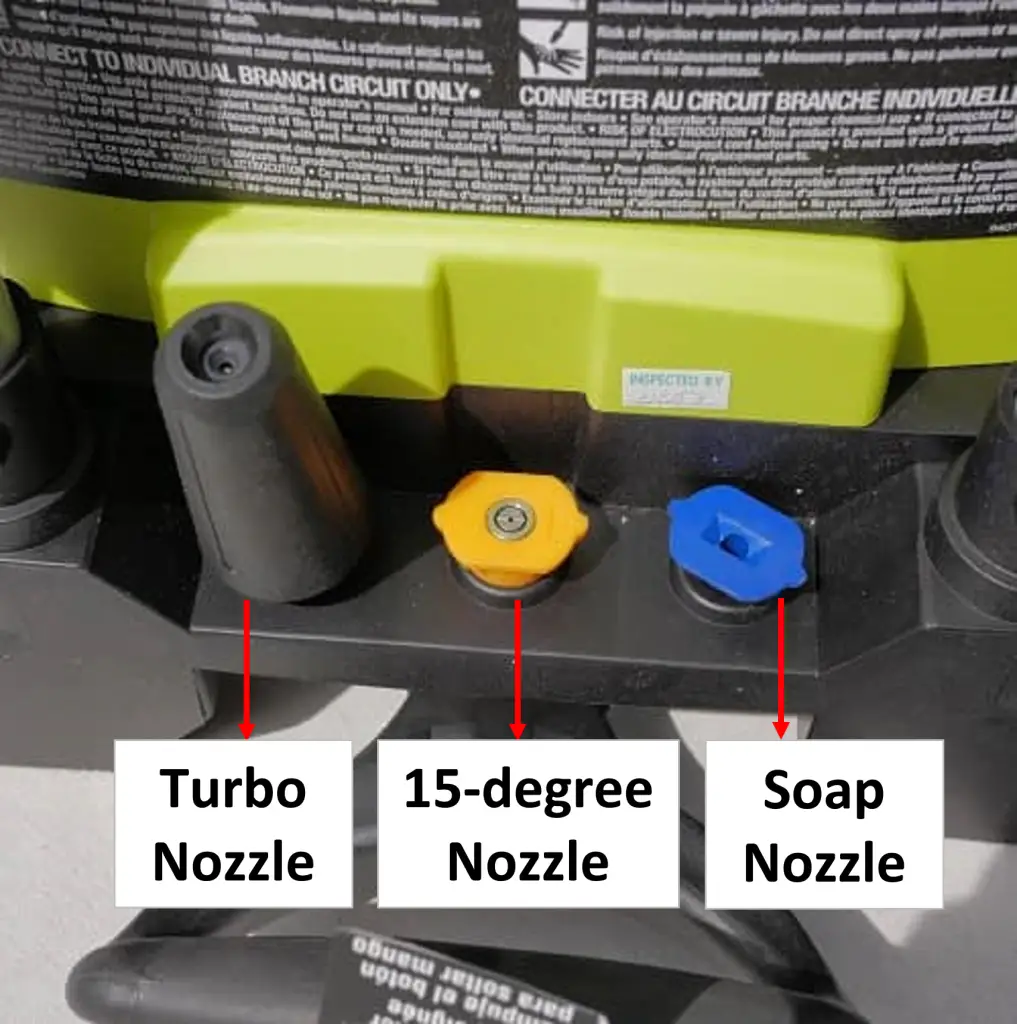
You can also use other degree nozzles according to your pressure & flow rate requirements (You can check your nozzle type as per your requirement Here) & buy them separately on Amazon.
2. Hose:
A 25-foot hose of medium quality is included with both pressure washers. A larger length hose can also be used, but you can expect a drop in pressure & flow rate of the unit. I like the Hose from UBERFLEX & Flexzilla; these are super flexible & high-quality hoses I have seen.
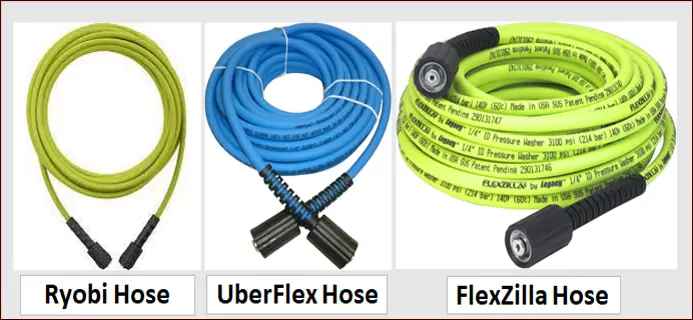
3. Power/Extension Cord:
Both pressure washers come with a 35-foot-long power GFCI cord extension. GFCI (A Ground Fault Circuit Interrupter) is used for increased electric shock safety.
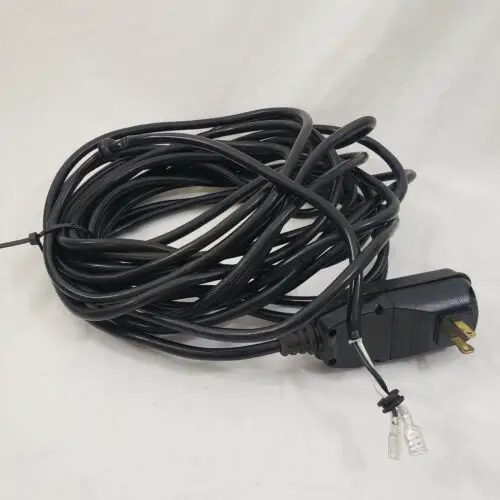
4. On-Board Detergent/Soap Storage Tank:
Both units are equipped with onboard detergent storage tanks.
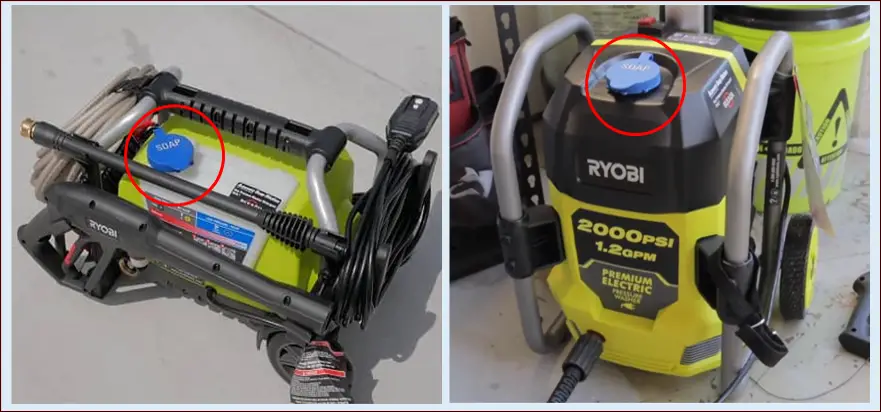
5. Telescoping handle & Two Wheels:
Both units have telescoping handles & two wheels for easy transport around the house.
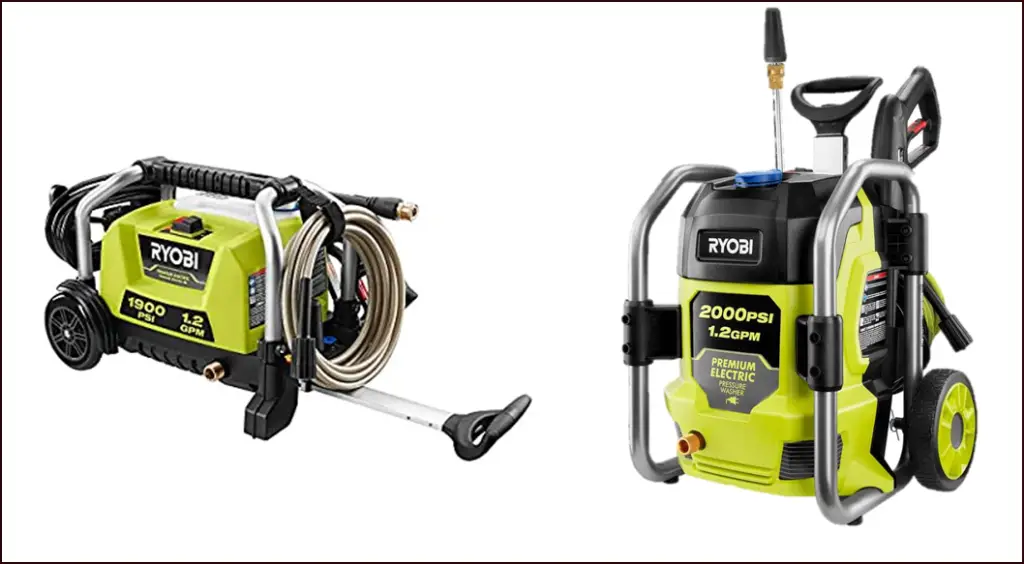
The Bottom Line
Ryobi electric pressure washers are definitely a nice addition to the pressure washer category because you don’t need to worry about the gas level or gas. You plug it in, and you get what you need.
Looking at the performance, features & prices of the Ryobi 1900 vs 2000 psi pressure washer. Ryobi 1900 psi pressure washer is definitely the best option because it is less cheap, lightweight & proves to be more efficient performance-wise than the Ryobi 2000 psi.
So I will recommend buying the Ryobi 1900 psi pressure washer. You can use it for car detailing, cleaning patios, driveways, windows, wood, etc.
